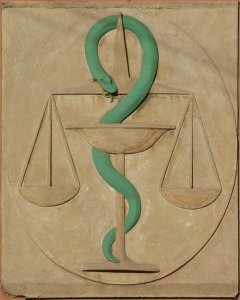I’m going to get a bit evangelical about hospice. Not just because it’s where I’ve chosen to work, but because I truly believe it’s the sane, humane, responsible, and truly caring way for each of us to die, should we have the time and opportunity for it.
First, I want to try to dispel some general assumptions:
We have to be actively dying to qualify for hospice.
Not true. Hospice is covered once a person has been given a terminal diagnosis and ceases actively seeking treatment. States vary in the details of how to certify a terminal diagnosis, but very generally, six months to live is a pretty fair assumption. And even that is only the starting point, since hospice patients go through re-certification periods which can continue for years so long as there is continued decline.
Hospice costs me money.
Nope. Once qualified, hospice is free. FREE. Medicare covers the whole shebang. An interdisciplinary team (Physician/Nurse Practitioner, Registered Nurse, Social Work, Hospice Aide, Chaplain, Volunteer, and if the specific hospice in question offers it, Complimentary Alternative Therapies), Durable Medical Equipment and medications related to the terminal diagnosis are fully covered. Hospices are 24/7 and the team goes to the home, be it personal living space, an adult foster care, a skilled nursing facility, or assisted living.
I have to use whatever hospice is related to my health plan.
Nu-uh. Medicare coverage means that we can use any hospice we want. Our normal health insurance, if we have it, is good if we want to keep taking medications that aren’t related to the terminal diagnosis but hospice itself is unrelated. We have as many choices as there are hospices, and are only restricted by distance and availability. Some hospices have waiting lists, some, like the one where I work, have a policy of never turning away a referral. Some offer CAM therapies, some may not have those readily available.
Hospice is about hastening my death.
No, no, no. In hospice, the nursing goals DO change. The primary goals are about comfort, about treating the symptoms, not the underlying disease or condition itself. Pain/discomfort. Nausea. Restlessness. Anxiety. Mental and spiritual distress. Hospice provides for not just the patient, but the caregivers as well. The family is integrated into hospice, and receives the same opportunities to receive care from the hospice team, particularly when it comes to the non-physical needs.
The truth is, we all die. All of us. And rather than pretend this inevitability doesn’t exist, hospice opens the black box and deals with it directly. Hospice attempts to remove the fear, ally the anxiety of the unknown, and to ease the ravages that come with the body doing what it’s meant to do.
Not everyone wants hospice. Some want to fight to the end, with machines and tubes and pumps and paddles and the beep beep beep of the monitors. Hospice, though, provides a choice to each of us.
We all die. What is needed for each of us to have a good death?


Comment